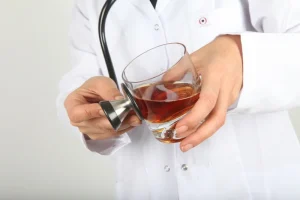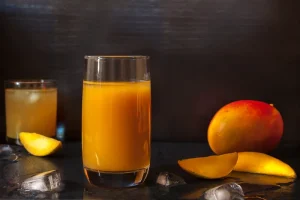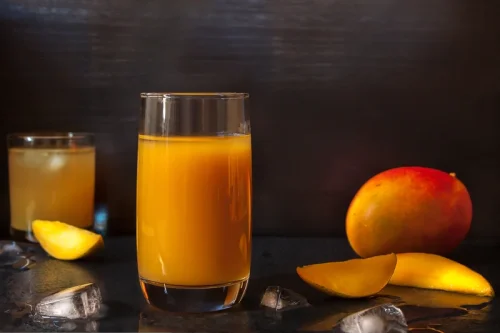
Cognitive behavioral therapy for insomnia (CBTi), medication, or a referral to a behavioral sleep specialist can help. Bill would draw me in emotionally and then shut the door tight, with me on the outside. There was a limit to his vulnerability though he longed for mine.
- These effects are primarily driven by psychological factors rather than pharmacological ones.
- Post-acute withdrawal syndrome (PAWS) involves withdrawal symptoms that persist past the detox period.
- Once detox is complete, people can begin work on the psychological, social and behavioral problems that accompany an alcohol addiction.
Maintain a healthy diet
- There has been some research conducted on how abstaining from alcohol detoxifies your liver over time.
- When I went away with my friends to the lake house, I called my local cocktail bar ahead of time and asked if they could make me a nonalcoholic beverage to-go.
- At first, the idea that if left untreated, his substance use disorder could become a chronic condition was a lot to absorb.
- After alcohol enters the bloodstream, the liver breaks it down.
As you likely know, alcohol can do a number on your brain, your liver, and your judgment. Here’s a quick overview of what happens when you stop drinking. This stage going back to drinking after being sober typically starts 3–5 years after you’ve stopped drinking. People often need to address past trauma or familial issues during this time.

A trick to reduce stress? Spend 20 seconds a day doing this easy practice
“The bottom line is, protect the heart with a low amount of alcohol, but increase the risk of cardiovascular disease with high amount of alcohol,” Dasgupta said. On the other hand, if you drink in moderation, alcohol doesn’t affect LDL and instead increases good cholesterol (HDL). Alcohol is metabolized by the liver and an enzyme called dehydrogenase. However, when you drink in excess, the enzyme gets saturated and is metabolized by a different enzyme.

Tips for success in alcohol recovery
I had trouble sleeping, night sweats, brain fog, and more. For the first few days I couldn’t hold a thought at all. Even after I started thinking a little more clearly, I still often lost the thread halfway through.

Knowing these statistics, why would any of these people choose to drink again? That said, there are four general stages of recovery, as compiled by addiction expert Steven M. Melemis, MD. These stages can help prevent relapse and support people to live healthier, fuller lives. Cognitive behavioral therapy (CBT) is an important tool for preventing relapses. It teaches you how to overcome negative thinking, which is often at the heart of a relapse. For example, you might believe that you can’t quit, that recovery takes too much effort, and that you won’t enjoy life as much without alcohol.
I finally reached my breaking point in March when I met two friends out for dinner. We all ordered drinks, then spent most of the meal discussing our not-so-great relationship with alcohol. I slept terribly that night and decided the next morning to try to stop for good. Going to AA can sometimes feel like the only path to recovery — but it isn’t. A reader asks about different ways of thinking about substance use treatment that have developed since AA was founded in 1935.

Addiction specialists emphasize that recovery plans should be tailored to the individual. This personalized approach extends to decisions about non-alcoholic beer. What might be a harmless alternative for one person could be a significant risk for another. AA’s approach to non-alcoholic beer aligns with their principle of “singleness of purpose.” This principle focuses on the primary goal of helping alcoholics achieve and maintain sobriety.
- You may also receive other medications or treatments for related health issues, like IV fluids for dehydration and electrolyte imbalances or antinausea medicines if you experience vomiting.
- Theoretically, at this stage the addiction is conquered completely.
- In short, being sober simply means not using alcohol or other substances but not necessarily recovered in other ways.
- If you’re not sure if your drinking crosses a certain line or not, try measuring your alcohol intake.
- Alcohol abuse kills over 140,000 people in the U.S. every year.
- This means making time for eating, sleeping, and having fun, as well as behaving kind enough toward yourself that you permit yourself these necessities.
At first, the idea that if left untreated, his substance use disorder could become a chronic condition was a lot to absorb. If you drink in excess, cutting out alcohol for a period of time can help your liver, heart, and body composition. I had a great time that weekend, even though I was the only sober one in the group. Sometimes when people ask why I’m not drinking, it’s easier to say that I’m suffering from insomnia than it is to talk about my complicated relationship with alcohol. In fact, drinking caffeine (whether in coffee or energy drinks) can sometimes be dangerous because it tricks people into thinking they’re sober.